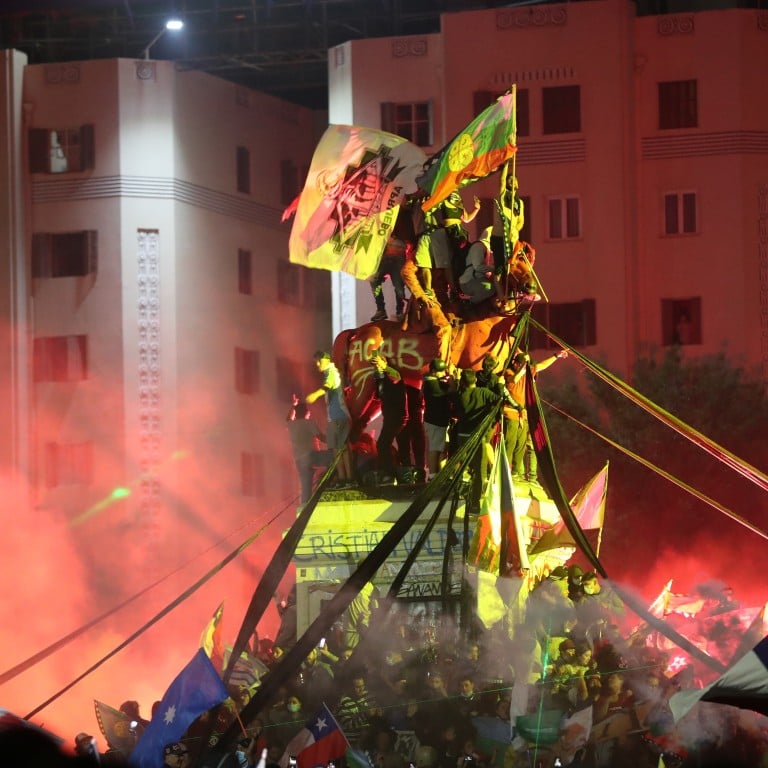
Chile to tear up Pinochet-era constitution after landmark referendum
- New charter to replace guiding principles imposed four decades ago under the military dictatorship of Augusto Pinochet
- President Sebastian Pinera’s government agreed to referendum after weeks of pressure from demonstrators
Chileans have overwhelmingly voted to rewrite the South American country’s dictatorship-era constitution in favour of a new charter drafted by citizens.
With 90 per cent of votes counted on Sunday night, a larger-than-expected 78.2 per cent backed a fresh charter, a key demand of protesters who took to the streets last year in the largest civil unrest in decades. The current document dates back to the dictatorship of Augusto Pinochet, under which at least 3,000 people were killed and thousands sequestered and tortured.
President Sebastian Pinera’s conservative government agreed to organise the referendum after weeks of pressure from demonstrators demanding better education, higher pensions and an end to neoliberal economic policies in one of Latin America’s most unequal countries.
The protests have continued after a pause due to the pandemic. More than 30 people were killed between October 2019 and February this year.
“This plebiscite is not the end, it is the start of a road that we must travel together to agree a new constitution for Chile,” Pinera said in a national address Sunday evening.
Over 14 million Chileans were eligible to vote in the referendum and to answer two questions: whether the constitution should be rewritten and if so, who should do it.

The choice was between a constitutional convention of elected citizens – likely to be chosen along party lines – and a mixed constitutional convention comprising half congressional representatives and half elected citizens.
After renewed violence in the run-up to the referendum, voting was peaceful and orderly, with many people lining up for hours to cast their ballot.
Thousands later congregated at Plaza Italia, the Santiago square that has become the symbolic centre of the protest movement, to celebrate. After initially using water cannons to deter the protesters, the police withdrew.
Churches burn as Chile protest anniversary rallies turn violent
Chileans will vote again in April to elect delegates to the assembly in charge of writing the new text. To avoid more radical viewpoints from making it into the constitution, legislators agreed on a clause that all articles must be approved by two-thirds of the assembly members.
“I am full of hope that things will change and that we will bring a radical turnaround in this country,” said Romina Nunez, 42, a poll organiser at the National Stadium in Santiago, the country’s biggest polling centre.

Thousands voted at the vast stadium, which achieved infamy as a detention centre where military regime opponents were tortured.
Elias Perez, a 39-year-old psychologist, said he wanted to give the place another meaning as he prepared to vote for change in a place rich with symbolism.
Chile’s elite scolded for escaping by helicopter for Easter holiday amid outbreak
“To be able to exercise the right to vote in a space of profound pain, where there were systematic violations of the human rights of many fellow Chileans, and be able to generate change in this same space – is a symbolic way of paying honour and tribute to all those who are no longer with us,” he said.
The vote was initially scheduled for April, but was delayed due to the Covid-19 pandemic which has killed some 13,800 Chileans, with more than 500,000 people infected by the new coronavirus.
Officials trying to ensure voters felt safe barred infected persons or those close to them from the polls, and long lines formed at voting places. Voters had to wear masks – dipping them only briefly for identification purposes – and brought their own pencils.
Reuters, Bloomberg, Agence France-Presse, Associated Press
